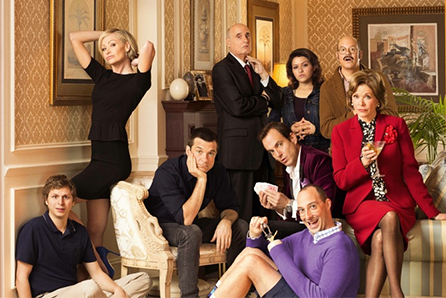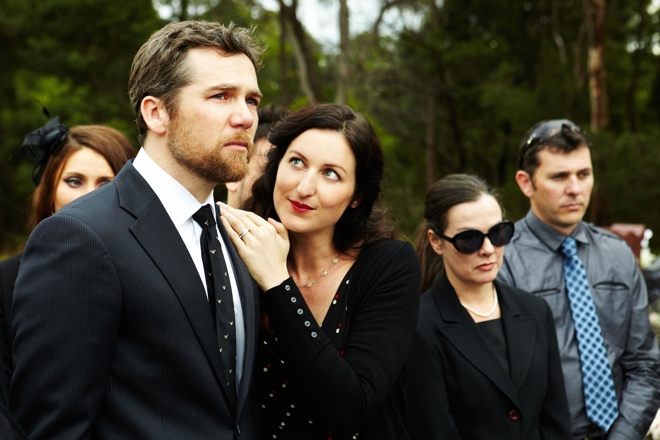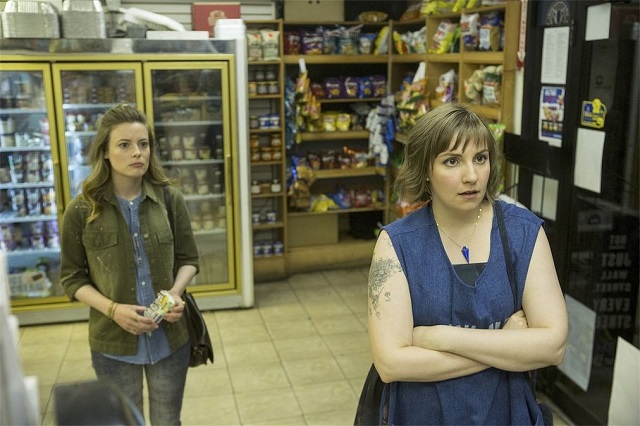In the seven years since Fox cancelled Arrested Development, its influence has not necessarily been as widespread as one might expect, given its rapturous cult following. A few series have attempted to emulate its heavily serialized approach to building and contorting gags over episodes and even seasons – Archer, in particular, springs to mind, as well as Community and 30 Rock, for those inclined – but for the most part, televised comedy hasn’t made the sort of evolutionary strides that drama and genre TV have been making over the same period. That Arrested Development is now the recipient of perhaps the largest-scale resurrection in television history would seem to make sense, then: as it has no definitive heir, its re-emergence in the 2010s doesn’t feel redundant.
The odds of the show returning at full strength, however, were always minimal. Seven years is a long time to preserve any comedy’s character dynamics, comic rhythms, and performance tics, to say nothing of the particular challenges of re-mounting a series as complex and dense with allusions as this one, and with this huge and varied a cast. So Mitchell Hurwitz and his writing team took what appeared to be the right move: try something altogether new. It’s not as though everyone watching won’t be aware of the production gap, so why not take on a form that expands the show’s limits as a serial comedy?
As recently as a few weeks back, Hurwitz teased that viewers would be able to watch season four’s fifteen episodes in any order, thanks to an unorthodox Rashomon-style structure that shifts the character perspective between episodes while focusing on the same events and roughly the same timespan. The idea was almost certainly borne of the fact that Jason Bateman is the only cast member who signed on for the entire run, with the rest of the show’s cast on set for briefer commitments of varying length – not a surprise, given that virtually all of these actors have deservedly gone on to have busy post-AD careers. Limitation is often the starting point for great work, and a new approach beats a rehash almost every time, so it seemed like Hurwitz and company simply made the best of a potentially tricky situation.
The intentions were clearly good, but season four is – to borrow a phrase – a hot mess. The gag-per-second rate remains prodigiously high, but the hit-to-miss ratio isn’t nearly as impressive this time around. The cast is generally top-notch, dipping back into these roles with gusto, but the nature of the fractured plotting and storytelling undercuts the cast’s chemistry. The freedom afforded to expand the episode’s lengths from 22 minutes out to 27, 30, and even 35 minutes leaves room for extended riffs and plot recapitulations in desperate need of trimming or outright excising. The most damning criticism, though, is that for considerable stretches, season four just isn’t all that much fun to watch, especially in the first half, thanks to bleak character non-arcs that aren’t sufficiently cushioned with laughs.
Some light spoilers follow.
The biggest offenders on that score are the episodes centered around Michael, George Sr., and Tobias. The throughline of AD‘s first three seasons was the gradual realization that Michael was just as capable of callousness and selfishness as the rest of his family, with the possibility that his (relative) intelligence might even make him the most problematic of the bunch. That development was always leavened somewhat, however, by his relationship with George Michael, which was frequently troubled but always sincere at its core, often providing the series with the bulk of its rare but deeply significant moments of pathos and earnestness. With Michael and his son at odds for nearly the entirety of the season, and with Michael becoming quite possibly the series’ most loathsome figure, that element is all but lost.
A similar problem crops up in the Tobias episodes. While they do get a lift courtesy of the always great Maria Bamford, and David Cross sinks right back into the character’s trademark desperation and self-denial perfectly, they also isolate Tobias almost completely from Lindsay and Maeby, thereby letting go of his attempts, however perfunctory, to be a husband or father. That might have been an interesting approach if the vacuum had been filled with anything other than a series of increasingly repetitive, and more than a little regressive, gay jokes. In the original run, the references to Tobias’s repressed sexuality tended to be slightly more coy or clever, but by the umpteenth vocal iteration of “anustart,” the dead horse is well and truly beaten here. (Credit where credit’s due, however: a sequence in which Tobias is the subject of a To Catch a Predator-style sting contains one or two of the season’s few belly laughs.) The George Sr. episodes suffer from a much simpler issue: neither George Sr. nor his doppelganger Oscar are particularly well-defined characters here, just vehicles for many of the season’s least inspired jokes.
The best of the lot are, perhaps predictably, also the most self-contained. The two Gob episodes (especially the first, “Colony Collapse”) are the most consistently funny of the entire run. That’s likely due to the fact that Gob is one of the few characters who’s actually given a storyline with some semblance of anything other than total misanthropy. From his addiction to “Forget-Me-Nows” (aka roofies) to his “affair” with an unlikely recurring character, Gob’s story beats serve both Will Arnett’s considerable gifts at embodying tragicomic desperation without forgetting to actually be funny. George Michael’s episodes, which come very late in the season, have the most fun expanding our idea of who the character is, given that he’s yet to be significantly corrupted by his family’s noxious influence. While he’s tethered to some gags that seem to take up an eternity’s screentime without gathering much traction (the deceptive phone call with his father, the dorm-room vote), George Michael’s relative innocence provide a much-needed counterpoint. Maeby and Buster only get one episode apiece, which is really too bad, as their outings are among the highlights, even if Maeby’s plot somewhat undercuts her amusing professional competence. The Buster-centric “Off the Hook,” besides being hilariously stacked with microscopic that-guy cameos, is the most successful at reviving the series’ undervalued sense of political outrage, with some very pointed jabs at the drone-strike program. While some scenes play up the Buster-Lucille dynamic in too-literal fashion, again leaning hard against unnecessarily dark character traits, it’s still a more tonally sound episode than either of Michael’s or Tobias’s.
Of course, AD‘s unique editing rhythms, narration style, and dense comic universe are just as crucial to the series’ identity as any of its characters, and there are still pleasures to be found here that evoke the magic of old. The aural puns – from the background vocal stings that punctuate key plot developments, to a very funny running gag involving a fake Top 40 earworm – remain one of the series’ most reliable comic wellsprings. AD‘s other aesthetic pleasures, however, return somewhat diminished. The biggest offender is Ron Howard’s narration, previously so perfectly pitched between wry observation, self-aware ribbing, and actually-important exposition. This time around, not only is there more narration (in addition to Howard appearing frequently onscreen as himself, to mildly amusing results), but it frequently over-explains, steps over gags, and underlines the season’s deeply repetitive nature. The editing is technically impressive – structuring the episodes must have been a nightmare – but the pacing is frequently slack.
The guest cast is also a mixed bag. The best additions – Terry Crews (as a Herman Cain stand-in who helps Lindsay’s episodes rise to the middle of the pack), John Slattery, Maria Bamford – slot in effortlessly and help elevate many of their scenes. Isla Fisher, serving in a very Marta-like capacity, is charming as ever, but doesn’t get a whole lot to do beyond serving as a plot device. The most controversial additions, of course, are Seth Rogen and Kristen Wiig as younger versions of George Sr. and Lucille. It’s an odd choice, given that we’ve already seen flashbacks in which Jeffrey Tambor and Jessica Walters maintain those roles. Wiig’s a natuural choice, but Rogen is a destabilizing element, unable to shake his innate Rogen-ness to inhabit the character in any meaningful way.
Perhaps the saving grace of season four is that it’s relatively unlikely to be the end of Arrested Development. The George Michael centric “Blockheads,” ostensibly meant to serve as a finale, fails to provide any significant payoff for many, if not all, of the season’s character arcs, to an almost baffling extent. Accordingly, a movie is apparently in the works, and there’s no reason to think another season is off the table at this point. Perhaps with a less constricted shooting schedule and a clearer sense of the size of the canvas, Hurwitz and company might be able to more fully capture the spirit and comic potency of the series’ original run. As it stands, season four is a noble, but only fitfully successful, experiment.







